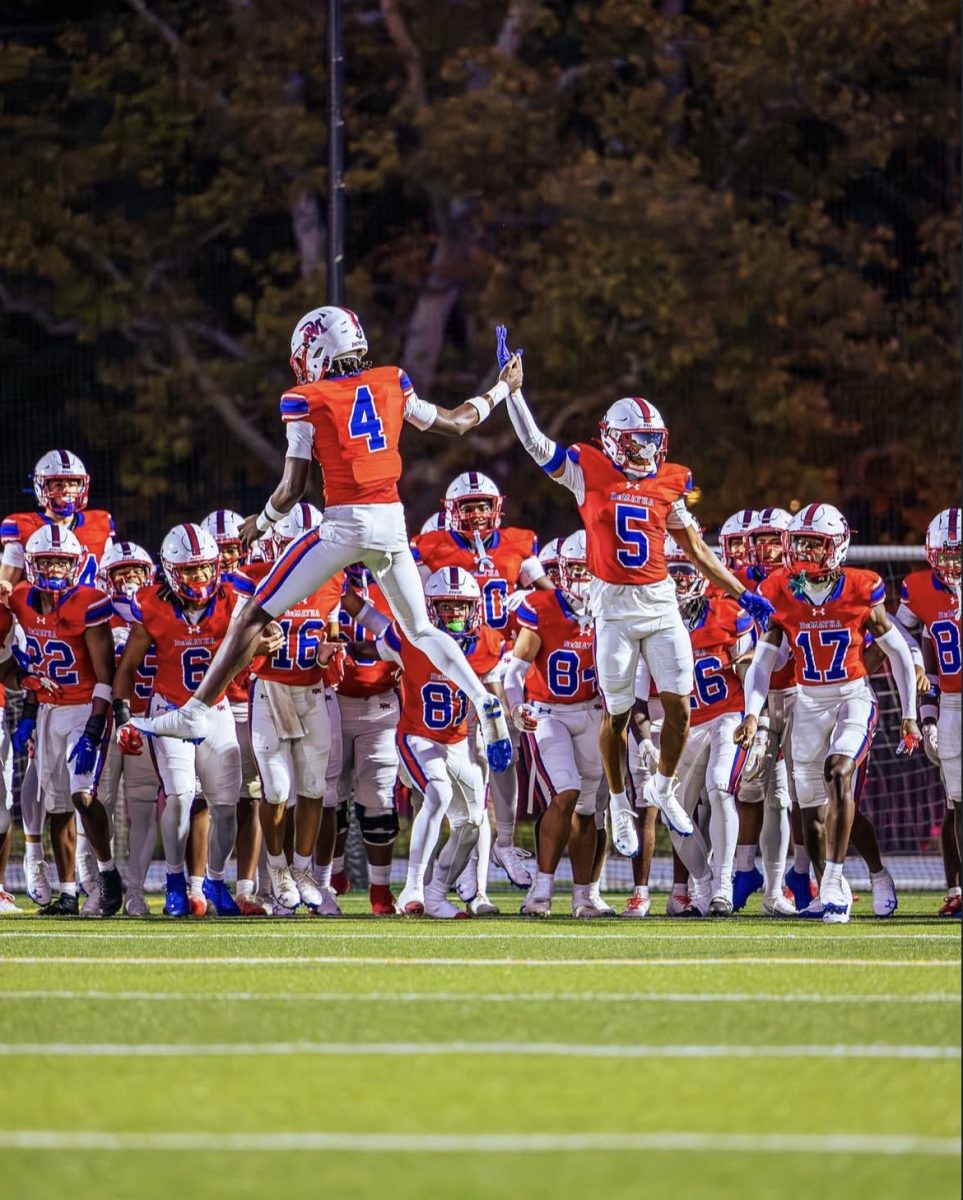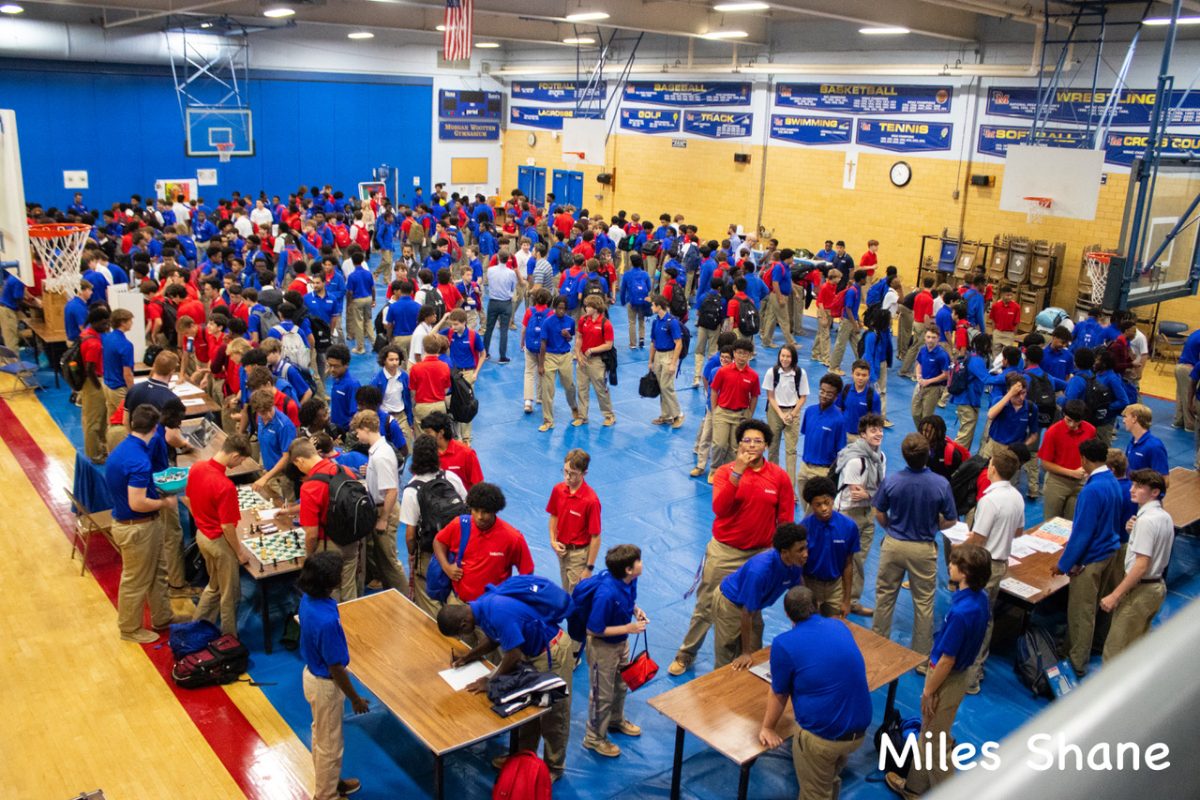
It has been over a month since the new DeMatha phone policy went into effect. This has affected all of the students differently, but required all students to adapt.
The phone policy states that you cannot have your phone in your pocket, bag, or hands from 8:10 a.m. until the final bell. If DeMatha faculty or staff see your phone on your person, they will take it and turn it into the attendance office, and you will have to pay to get your phone back. This means that you cannot use your phone to open up Veracross, check your schedule, pay for food, text people, and many other things, as well.
According to faculty, the phone policy was instituted to increase interaction with others and to decrease distractions. It’s also important to note that DeMatha isn’t the only high school to implement this new phone policy. Many high schools across the country, including 16 middle and high schools in Baltimore County, have introduced the no-phone policy, according to Johns Hopkins University.
Sophomore Shane Brent isn’t a fan of the new policy. “When you have no free time there is nothing to do,” Shane explains. Even though there is a no-phone policy, students try to bypass this by bringing other devices such as laptops or tablets, and some even use their phones in the bathrooms.
Since there are no phones allowed in the school, to get into Veracross on laptops the school gave all students USB keys. Sophomore Malik Henderson said, “I don’t even use the key. I just use my MacBook to log into Veracross because it is easier.”
Students like Malik use their laptops, which are connected to their phone numbers, to log in since the keys can be very complicated. The keys given to students are small and require a pin to log in. The pin was given to the user in the folder that the USB key came in.
There are three offenses that can happen if you break the cell phone policy. For the first offense, your phone is confiscated and sent to the Dean’s Office and you pay $5 to get it back at the end of the day. For the second offense, your phone is confiscated, you receive a Saturday detention, and for the next 10 school days the student will be required to bring his phone to the Dean’s Office at 8:00 a.m. For the third offense, a meeting with the parents and the Dean’s Office will be required to discuss the repeated non-compliance and next steps.
One pro of the phone ban in schools is that it can help reduce distractions and keep students focused on their learning. It may improve academic performance by encouraging concentration and preventing cheating. Students are also more likely to engage with students and teachers because they won’t be constantly distracted because of their electronics. This ban creates an all around more focused and productive learning environment.
A con of the phone ban in schools is that it can make it harder for students to contact parents in emergencies. It may also limit access to helpful educational tools and resources available on smartphones. Some students could feel disconnected without their phones. Additionally, enforcing the ban could be challenging for teachers and staff.
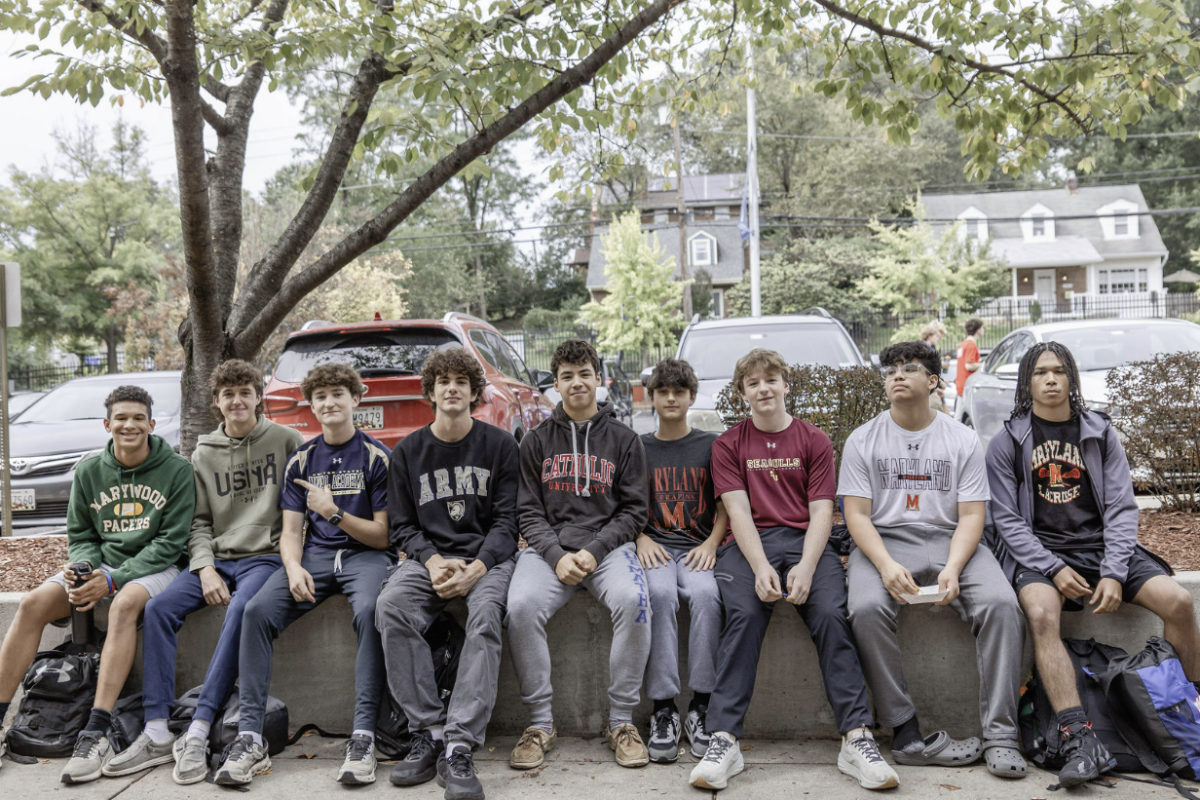

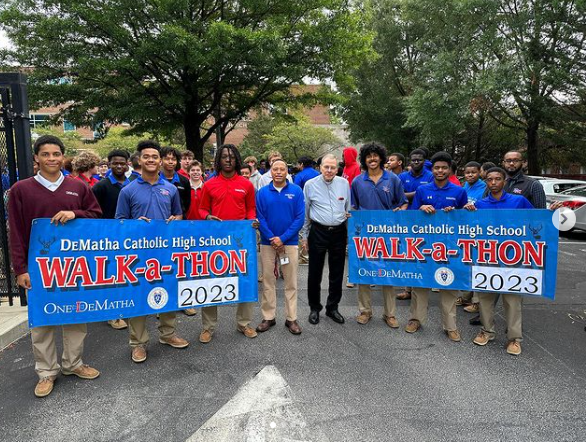

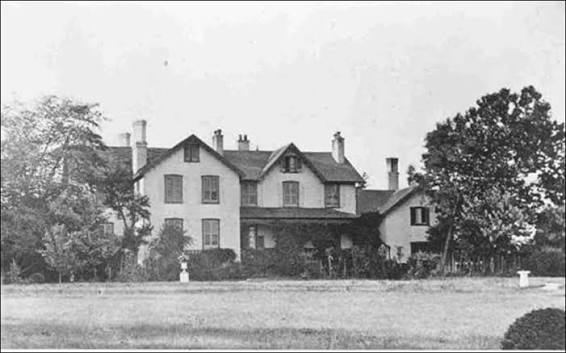


![DeMatha Catholic [@DeMatha Catholic]. 2025, September, 19. Instagram.](https://demathastagline.com/wp-content/uploads/2025/09/IMG_3305.jpeg)

